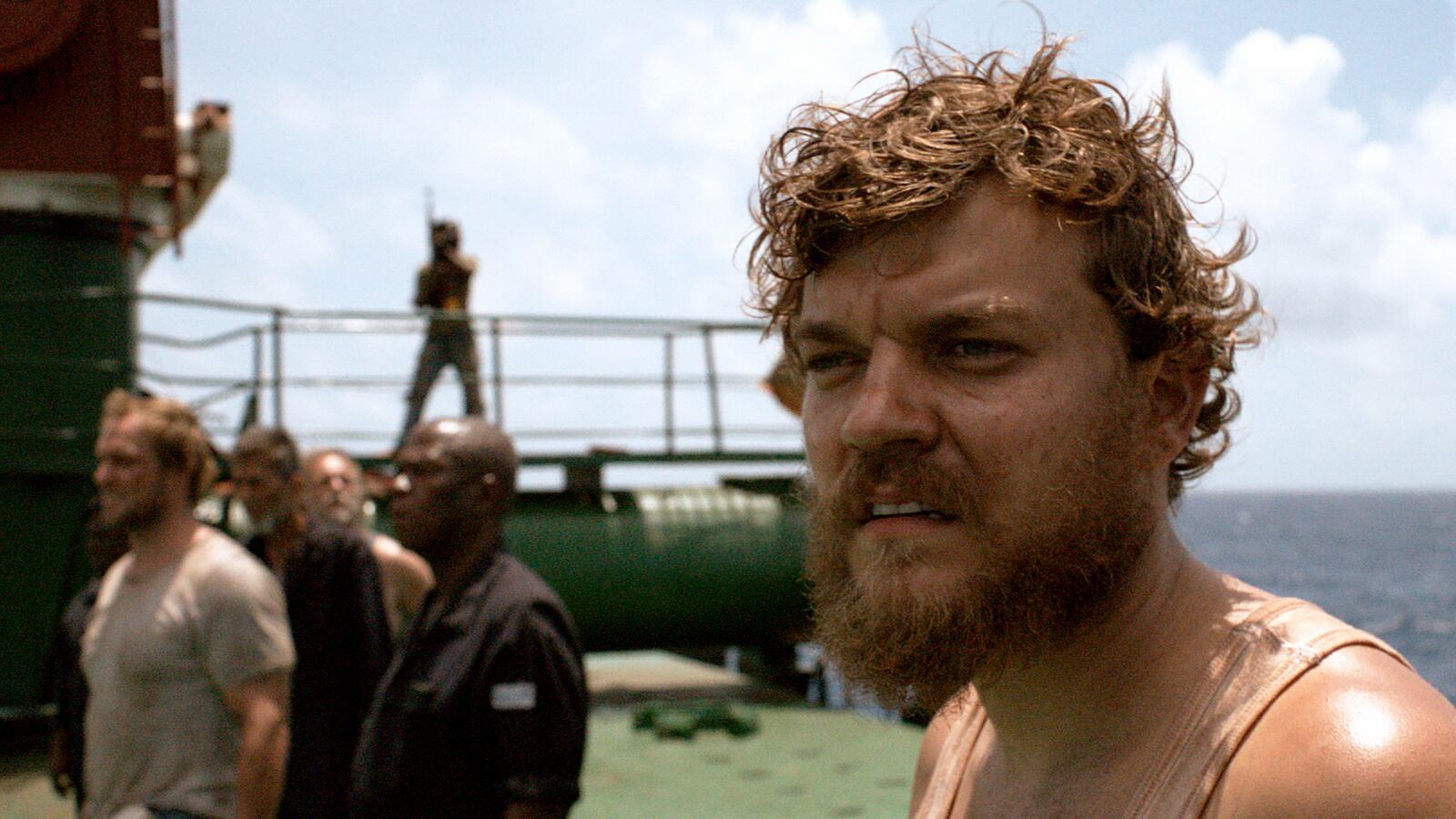For obvious reasons, most of the Scandinavian drama that has reached American TV and cinema screens in recent years has played out under driving rain and lowering, leaden skies. So it is initially somewhat disconcerting to discover that a large part of the action in A Hijacking, the solo directorial debut from Tobias Lindholm—the writer behind Borgen and The Hunt—takes place in the relentless sunshine of the Indian Ocean.

As you take your seat and reach for the popcorn, you can’t help wondering if the famously stark style of northern European filmmaking will shrivel up and die like a vampire when exposed to equatorial UVA. How will Lindholm maintain the requisite long periods of Danish negativity when it’s holiday weather outside?
The answer, it soon becomes apparent, is that almost all the action on the boat, the MV Rozen, is filmed belowdecks—bat-like, Lindholm even retreats to the pitch-dark hull of the vessel toward the end—after a group of Somali pirates seize the tanker and demand a massive ransom to free it. The crew, including the boat’s chef, Mikkel (Pilou Asbæk, who worked with Lindholm on Borgen and R), are locked in an increasingly unsanitary common room.
A good part of the action also takes place in a hastily assembled and windowless crisis-control room in the offices of the Danish logistics company, where the film opens. In the first shots of A Hijacking, which has been bubbling along under the radar since opening to limited release in the United States in the middle of last month, we see the apparently robot-like CEO Peter (Søren Malling) engaged in negotiations with a group of Japanese businessman over how many millions he will pay them for space on a ship. They want €14 million, he wants to pay €9 million, they won’t budge, so he prepares to leave the room. As he is walking out the door, the Japanese call him back, capitulate, and a happy medium is agreed on.
This is how we are used to negotiations taking place in the West. But that’s very much not how things will go down with the Somali pirates. As Connor (Gary Skjoldmose Porter), the British hostage negotiator (who, if he appears convincing, should do, as he is a hostage negotiator in real life and acted as a consultant on the movie) parachuted in to coordinate the response, says: “If they ask for 15 million, and you give them 15 million, they will say, ‘Thanks very much—for the deposit.’”
Accordingly, when the pirates finally make contact and demand $50 million, Peter offers them a derisory $250,000. The scene is set for a four-month series of negotiations, during which conditions on the boat and the mental health of all involved inevitably deteriorate, a process this brilliant and torturous movie tracks in relentless detail.
Hollywood also is turning its attention to the dramatic subject of hijacking, with Tom Hanks scheduled to play the eponymous role in the forthcoming Captain Phillips. The trailer for that movie, to be released in October, shows the high drama of the pirates approaching the ship and the terrifying moment of them boarding the ship, and it seems safe to assume that an astonishing act of heroism by Hanks will save the day. In fairness, it looks like it will be a pretty exciting film.
A Hijacking, by contrast, couldn’t exactly be described as “exciting.” We never see the pirates boarding the ship, and the one act of minor bravery that does take place is ruthlessly exposed by Lindholm as idiotic yet entirely understandable and credible stupidity born of unimaginable frustration and humiliation.
Instead, the seemingly endless plight of the hijacked men, the extraordinary moments of fleeting friendship between them and their captors on the MV Rozen (which was hijacked for real in 2007), and the appalling pressure on the company owners as they are forced to put a value on human life are more than enough to sustain this latest offering for lovers of Scandinavian cinema and film.
Eschewing melodrama in favor of the lean style for which Scandinavian cinema is celebrated, Lindholm truly has us on the edge of our seats until the final seconds—shot, naturally enough, in an underground parking lot.






